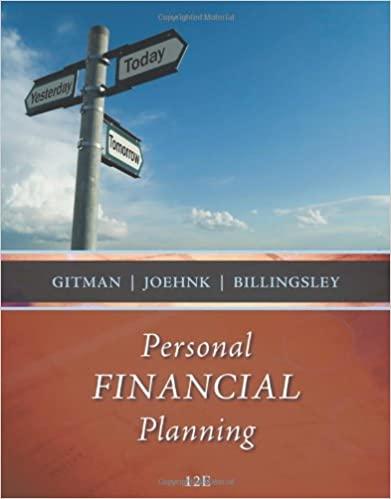Question
Assumptions: everybody is risk neutral, the interest rate is 0 and investors (lenders) are competitive. One entrepreneur needs to borrow money for her project. The
Assumptions: everybody is risk neutral, the interest rate is 0 and investors (lenders) are competitive. One entrepreneur needs to borrow money for her project. The initial cost of the project is K. The entrepreneur has a quantity of cash of her own equal to E. Assume K > E, so if the entrepreneur wants to start the project, she will need to borrow K - E from investors. The project, after one period, can be either a success and pay off Y , or a failure and pay off 0. The probability for the project to be a success depends on the entrepreneurs behavior: if she behaves the probability of success will be equal to pH, if she shirks the probability will be equal to pL < pH. On the other hand, if the entrepreneur shirks, she will enjoy a private benefit (non transferable to others) equal to B > 0 that can be summed to her monetary payoff. Assume the following: pHY > pLY + B, pHY - K > 0 and 0 > pLY + B - K. Before the project is undertaken and before the entrepreneur makes the choice between behaving and shirking, the entrepreneur and the investors can enter a debt contract. The entrepreneur cannot commit to behave and she enjoys limited liability. The sequence of actions is the following: 1. Loan agreement is signed (one period zero coupon bond) 2. The investment is made 3. The entrepreneur decides whether to shirk or behave 4. Payooff is realized a) Assume for a moment that E>K. If the entrepreneur had E>K and used her own fnancial resources to fund the project, would she shirk? [10 Points] Back to the case E
Step by Step Solution
There are 3 Steps involved in it
Step: 1

Get Instant Access to Expert-Tailored Solutions
See step-by-step solutions with expert insights and AI powered tools for academic success
Step: 2

Step: 3

Ace Your Homework with AI
Get the answers you need in no time with our AI-driven, step-by-step assistance
Get Started


